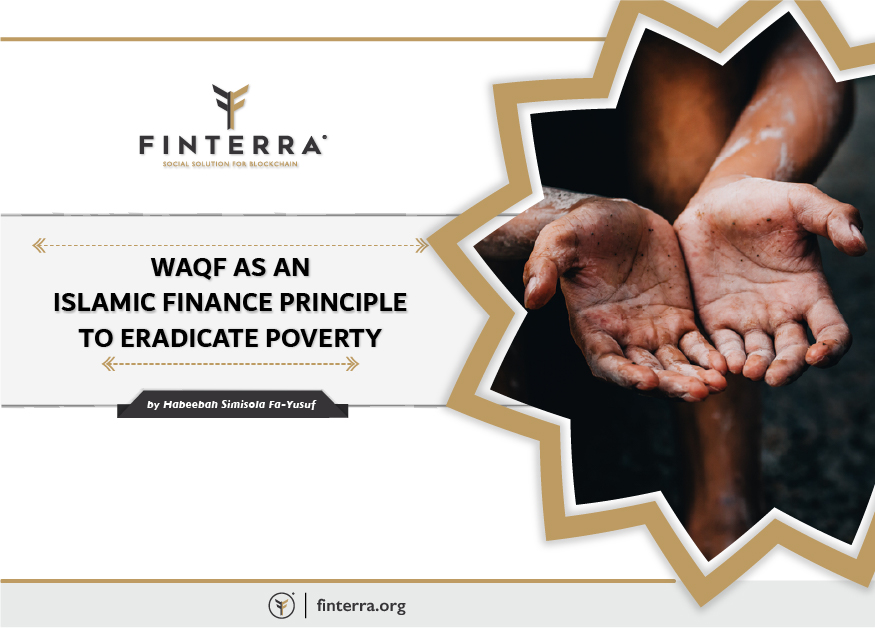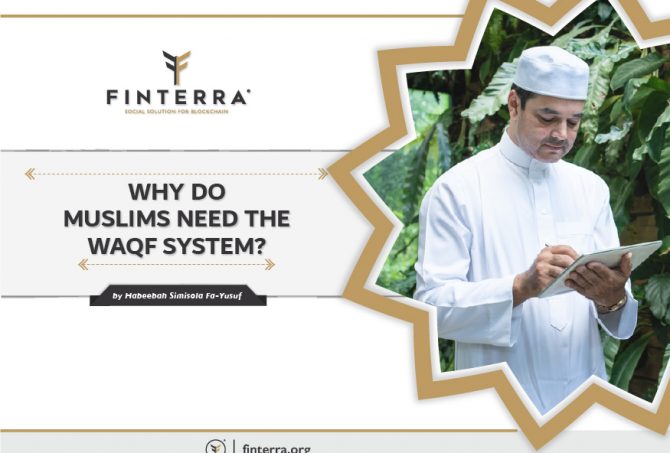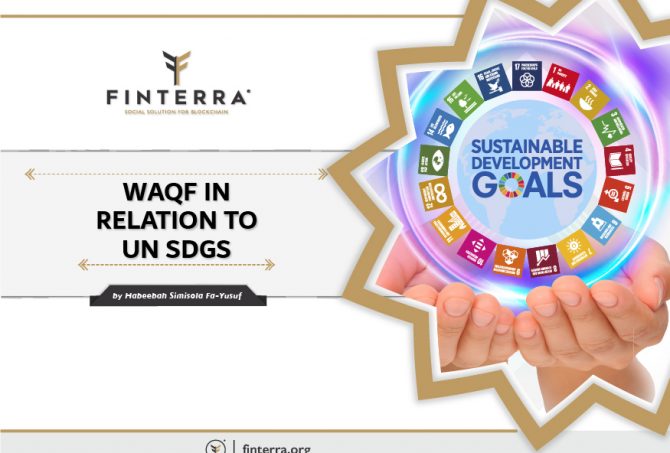Waqf as an Islamic Finance Principle to Eradicate Poverty
Even though it is estimated that the world’s Muslim population is 24%, half of global poverty resides in the Muslim world (Al Huda Cibe, 2018). Also, 25 out of the 57 Organisation of Islamic Cooperation (OIC) countries are the most poverty-stricken in the world (Islamic Markets, 2020). These statistics should worry Muslims but there is a way out. The way out is through Islamic Social Finance.
As an Islamic Social Finance instrument, waqf is useful in eradicating poverty in a multi-dimensional way. The first dimension is by addressing issues of social service poverty such as providing health and education services. It is well-known that waqf can complement the provision of these services even though traditionally, these services ought to be provided for by the government. The vicious cycle of poor healthcare, education, etc. leading to poverty can be turned to a virtuous cycle with the intervention of an effective waqf system.
Another dimension through which waqf can eradicate poverty is by providing funds for investment thereby increasing income for the poor. Innovative kinds of waqf such as waqf shares can be invested in promising halal business ventures especially when the business idea is from a needy member of the society. Apart from income generation, waqf shares could also be harnessed to provide gainful employment for the unemployed. One way of approaching waqf aimed for poverty alleviation is by integrating waqf with microfinance. This way, a call for cash waqfs can be made in order to provide loans to poor businessmen (Elasrag, 2017). It is well-known that the conventional, interest-based microfinance sector poses severe hardship on poor, business owners. By integrating waqf with microfinance, these groups of individuals can benefit from interest-free and fair capital. Also, through microfinance, promising poor businessmen and women can be coached with the necessary entrepreneurship skills and knowledge thereby freeing them from poverty.
One other way waqf can help eradicate poverty is by bailing out poor, indebted individuals. This procedure will complement Zakat in helping debtors as Zakat alone cannot be relied upon to help indebted individuals.
In conclusion, Muslims need to act fast to eradicate poverty. Eradicating poverty with the use of waqf is bound to bring other benefits such as the avoidance of social risks like crime. Apparently, waqf is about way more than just benefitting the beneficiaries directly. In order to make the most out of the great impact of this instrument, companies like Finterra, a blockchain-based organisation, has utilised the power of blockchain technology to make the attainment of poverty eradication easy. With blockchain comes charity on blockchain and one of such avenues is Ensany. It is the world’s first charity on blockchain platform which, if effectively responded to, can help in achieving the goal of eradicating poverty.
References
Al Huda Cibe. (2018). Poverty in Muslim World is Rapidly Increasing: Zubair Mughal. Retrieved 13 February 2020, from http://www.alhudacibe.com/imhd/news22.php
Elasrag, H. (2017). Towards a New Role of the Institution of Waqf. SSRN Working Paper. https://doi.org/10.2139/ssrn.3011290
Islamic Markets. (2020). Magnitude of Poverty in the Muslim World. Retrieved 13 February 2020, from https://islamicmarkets.com/education/magnitude-of-poverty-in-the-muslim-world
As an Islamic Social Finance instrument, waqf is useful in eradicating poverty in a multi-dimensional way. The first dimension is by addressing issues of social service poverty such as providing health and education services. It is well-known that waqf can complement the provision of these services even though traditionally, these services ought to be provided for by the government. The vicious cycle of poor healthcare, education, etc. leading to poverty can be turned to a virtuous cycle with the intervention of an effective waqf system.
Another dimension through which waqf can eradicate poverty is by providing funds for investment thereby increasing income for the poor. Innovative kinds of waqf such as waqf shares can be invested in promising halal business ventures especially when the business idea is from a needy member of the society. Apart from income generation, waqf shares could also be harnessed to provide gainful employment for the unemployed. One way of approaching waqf aimed for poverty alleviation is by integrating waqf with microfinance. This way, a call for cash waqfs can be made in order to provide loans to poor businessmen (Elasrag, 2017). It is well-known that the conventional, interest-based microfinance sector poses severe hardship on poor, business owners. By integrating waqf with microfinance, these groups of individuals can benefit from interest-free and fair capital. Also, through microfinance, promising poor businessmen and women can be coached with the necessary entrepreneurship skills and knowledge thereby freeing them from poverty.
One other way waqf can help eradicate poverty is by bailing out poor, indebted individuals. This procedure will complement Zakat in helping debtors as Zakat alone cannot be relied upon to help indebted individuals.
In conclusion, Muslims need to act fast to eradicate poverty. Eradicating poverty with the use of waqf is bound to bring other benefits such as the avoidance of social risks like crime. Apparently, waqf is about way more than just benefitting the beneficiaries directly. In order to make the most out of the great impact of this instrument, companies like Finterra, a blockchain-based organisation, has utilised the power of blockchain technology to make the attainment of poverty eradication easy. With blockchain comes charity on blockchain and one of such avenues is Ensany. It is the world’s first charity on blockchain platform which, if effectively responded to, can help in achieving the goal of eradicating poverty.
References
Al Huda Cibe. (2018). Poverty in Muslim World is Rapidly Increasing: Zubair Mughal. Retrieved 13 February 2020, from http://www.alhudacibe.com/imhd/news22.php
Elasrag, H. (2017). Towards a New Role of the Institution of Waqf. SSRN Working Paper. https://doi.org/10.2139/ssrn.3011290
Islamic Markets. (2020). Magnitude of Poverty in the Muslim World. Retrieved 13 February 2020, from https://islamicmarkets.com/education/magnitude-of-poverty-in-the-muslim-world




